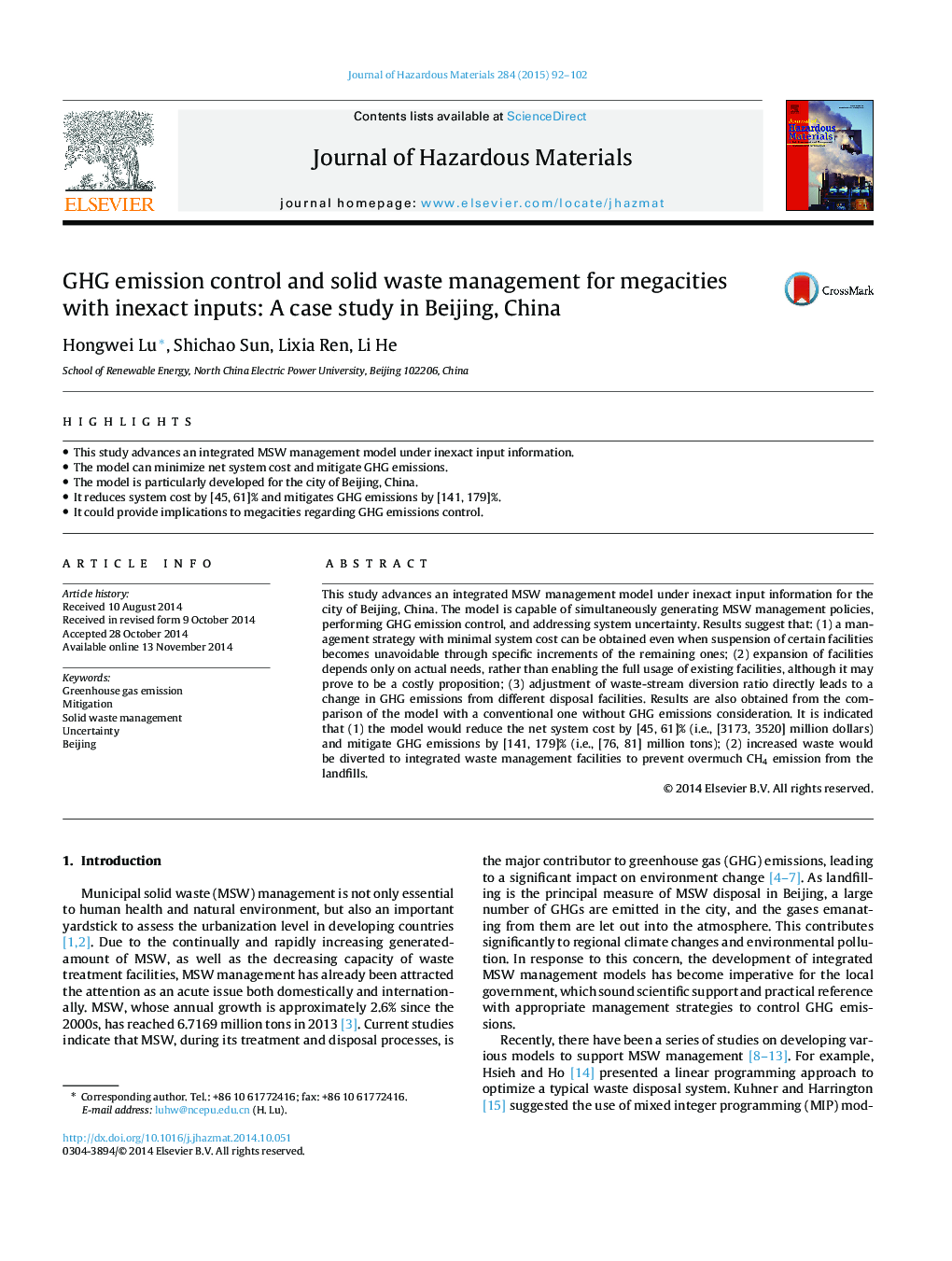| Article ID | Journal | Published Year | Pages | File Type |
|---|---|---|---|---|
| 576216 | Journal of Hazardous Materials | 2015 | 11 Pages |
Abstract
This study advances an integrated MSW management model under inexact input information for the city of Beijing, China. The model is capable of simultaneously generating MSW management policies, performing GHG emission control, and addressing system uncertainty. Results suggest that: (1) a management strategy with minimal system cost can be obtained even when suspension of certain facilities becomes unavoidable through specific increments of the remaining ones; (2) expansion of facilities depends only on actual needs, rather than enabling the full usage of existing facilities, although it may prove to be a costly proposition; (3) adjustment of waste-stream diversion ratio directly leads to a change in GHG emissions from different disposal facilities. Results are also obtained from the comparison of the model with a conventional one without GHG emissions consideration. It is indicated that (1) the model would reduce the net system cost by [45, 61]% (i.e., [3173, 3520] million dollars) and mitigate GHG emissions by [141, 179]% (i.e., [76, 81] million tons); (2) increased waste would be diverted to integrated waste management facilities to prevent overmuch CH4 emission from the landfills.
Related Topics
Physical Sciences and Engineering
Chemical Engineering
Chemical Health and Safety
Authors
Hongwei Lu, Shichao Sun, Lixia Ren, Li He,
